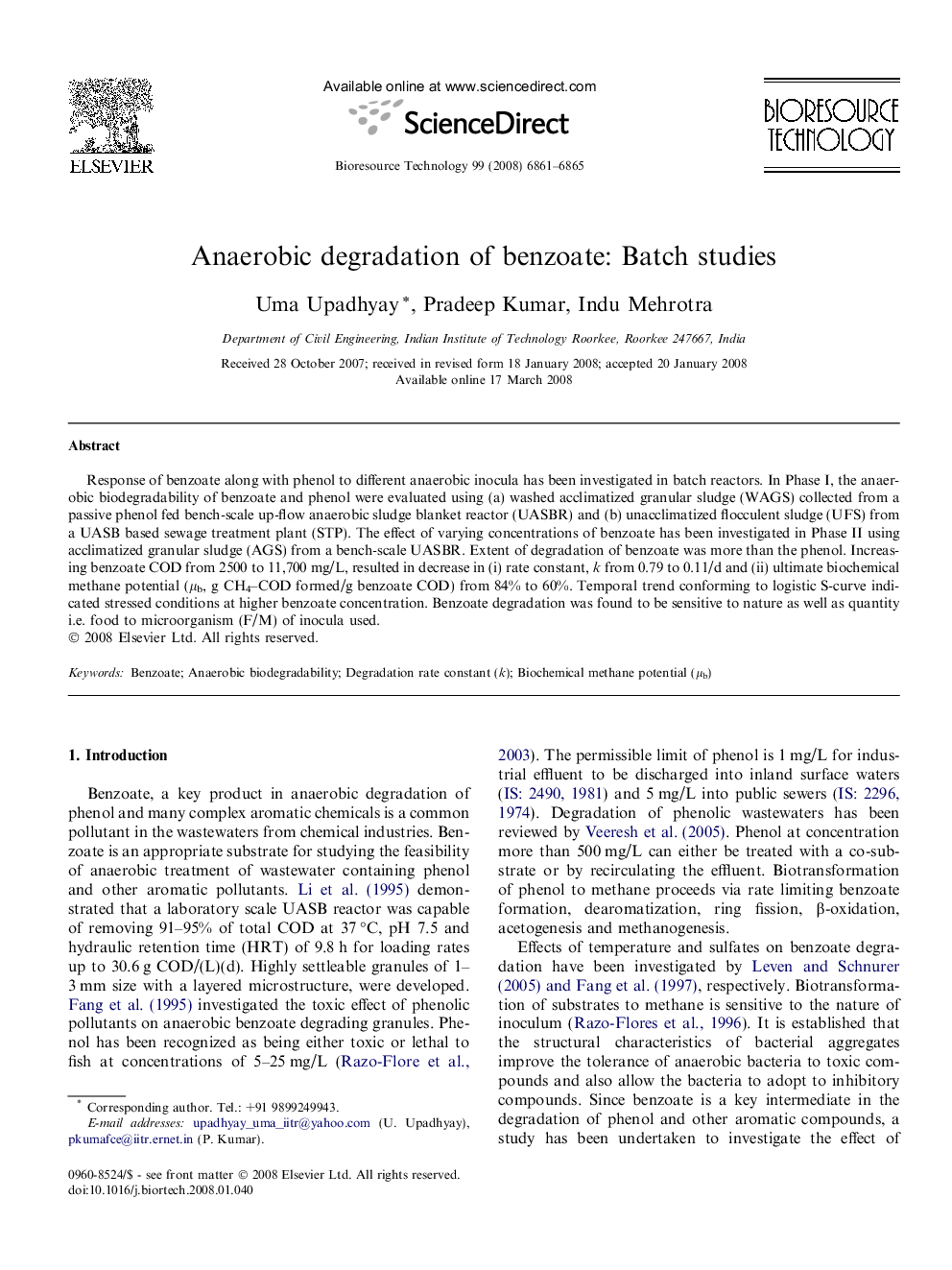| Article ID | Journal | Published Year | Pages | File Type |
|---|---|---|---|---|
| 685265 | Bioresource Technology | 2008 | 5 Pages |
Response of benzoate along with phenol to different anaerobic inocula has been investigated in batch reactors. In Phase I, the anaerobic biodegradability of benzoate and phenol were evaluated using (a) washed acclimatized granular sludge (WAGS) collected from a passive phenol fed bench-scale up-flow anaerobic sludge blanket reactor (UASBR) and (b) unacclimatized flocculent sludge (UFS) from a UASB based sewage treatment plant (STP). The effect of varying concentrations of benzoate has been investigated in Phase II using acclimatized granular sludge (AGS) from a bench-scale UASBR. Extent of degradation of benzoate was more than the phenol. Increasing benzoate COD from 2500 to 11,700 mg/L, resulted in decrease in (i) rate constant, k from 0.79 to 0.11/d and (ii) ultimate biochemical methane potential (μb, g CH4–COD formed/g benzoate COD) from 84% to 60%. Temporal trend conforming to logistic S-curve indicated stressed conditions at higher benzoate concentration. Benzoate degradation was found to be sensitive to nature as well as quantity i.e. food to microorganism (F/M) of inocula used.
